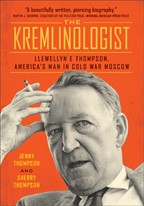
Reviews
Based on painstaking research, this admiring yet critical portrait of John Foster Dulles supersedes all previous ones, including mine. In an era when words like statesmanship, expertise, and world order have all but lost their meaning, Bevan Sewell's biography is an accessible history of the first half of the twentieth century that resonates in the twenty-first.
For more than a century, in his life and legacy, John Foster Dulles has confounded expectations. But Dulles has finally met his match in Bevan Sewell, whose superb biography explains the contradictions and solves the puzzles of one of the most important figures in American diplomatic history.
Book Details
Acknowledgments
Introduction
Chapter 1. Watertown, Princeton, and the World
Chapter 2. Learning from the Peacemakers
Chapter 3. Wall Street Internationalist
Chapter 4. The Transatlantic Ecumenical Movement
Acknowledgments
Introduction
Chapter 1. Watertown, Princeton, and the World
Chapter 2. Learning from the Peacemakers
Chapter 3. Wall Street Internationalist
Chapter 4. The Transatlantic Ecumenical Movement
Chapter 5. Global War
Chapter 6. Conceptualizing the Cold War
Chapter 7. Waging Cold War
Chapter 8. Frustrations, Divisions, and Death
Conclusion
Notes
Index






